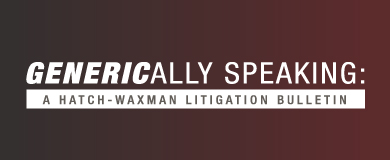- Acumen Powered by Robins Kaplan LLP®
- Affirmative Recovery
- American Indian Law and Policy
- Antitrust and Trade Regulation
- Appellate Advocacy and Guidance
- Business Litigation
- Civil Rights and Police Misconduct
- Class Action Litigation
- Commercial/Project Finance and Real Estate
- Corporate Governance and Special Situations
- Corporate Restructuring and Bankruptcy
- Domestic and International Arbitration
- Health Care Litigation
- Insurance and Catastrophic Loss
- Intellectual Property and Technology Litigation
- Mass Tort Attorneys
- Medical Malpractice Attorneys
- Personal Injury Attorneys
- Telecommunications Litigation and Arbitration
- Wealth Planning, Administration, and Disputes
Acumen Powered by Robins Kaplan LLP®
Ediscovery, Applied Science and Economics, and Litigation Support Solutions
-
June 1, 2022Chambers USA Recognizes Five Robins Kaplan Practice Groups And 17 Lawyers In 2022 Guide
-
June 1, 2022Seasoned Attorney Joins Firm’s Business Litigation Group
-
May 26, 2022Shira Shapiro Named Woman of Promise By The Pearl Society
-
June 3, 202219th Annual Advanced Insurance Law
-
June 9, 2022Building Your Brand: Perspectives and Insights from a Diverse Bar
-
June 10, 2022LGBTQ Legal Services: Transgender Name Change Clinic
-
May 24, 2022Briefly: Seeking Fees and Costs While on Appeal
-
May 19, 202211th Circ. Ban On Service Awards May Inhibit Class Actions
-
May 13, 2022Trademark Applications and the Murky Waters of Subject Matter Jurisdiction
-
June 2, 2022Sandberg Stepping Down as Meta COO After 14 Years
-
June 1, 2022Markets Revert to Recent Form as Pessimism Takes Hold
-
May 27, 2022Unexpectedly Strong Retail Sales Pull Markets Back from the Brink
Find additional firm contact information for press inquiries.
Find resources to help navigate legal and business complexities.
Allergan, Inc. v. Barr Lab., Inc.
In a bench trial, the Court, acting as the finder of fact, is free to ignore the testimony of an expert it has determined lack credibility.
April 17, 2013

Case Name: Allergan, Inc. v. Barr Lab., Inc., No. 2012-1040, 2013 U.S. App. LEXIS 2122 (Fed. Cir. Jan. 28, 2013) (Circuit Judges Rader, Bryson, and Wallach presiding; Opinion by Wallach) (Appeal from D. Del., Robinson, J.)
Drug Product and Patent(s)-in-Suit: Lumigan® (bimatoprost); U.S. Patent No. 5,688,819 (“the ’819 patent”)
Nature of the Case and Issue(s) Presented: Allergan asserted that the ’819 patent was infringed by defendants’ proposed generic product. Defendants asserted that under a proper claim construction, they did not infringe the ’819 patent. In particular, Defendants argued that a claim term providing for various substituents required the substituents to be the same. Allergan argued that the inventor acted as his own lexicographer and did not require the substituents to be the same.
Defendants also argued that the ’819 patent was invalid as obvious. Allergan argued that Defendants’ expert was completely discredited such that his testimony should be ignored, and that Defendants’ other obviousness combination was unsupported by expert testimony. Defendants argued that expert testimony was not required. The district court agreed with Allergan and found the ’819 patent valid. On appeal, the Federal Circuit affirmed the district court’s holdings.
Why Allergan Prevailed: As to the claim construction issue, the Federal Circuit found that the inventor acted as his own lexicographer because there were several examples where the substituents were not identical. Thus, the inventor deviated from plain and ordinary meaning, which would have required identical substituents, and used his own definition.
With respect to the lower court’s holding concerning the validity of the ’819 patent, the Federal Circuit first noted that the underlying factual determinations of obviousness are done by the fact finder, here the district court as it was a bench trial. The district court was free to ignore the testimony of an expert it had determined lack credibility. The Federal Circuit rejected Defendants’ argument that expert testimony on an obviousness combination was unnecessary because the district court was free to determine that this case was complex and the technology was not simple. Thus, expert opinion was necessary.
Finally, the Federal Circuit disagreed with the Defendants’ that Allergan’s expert had provided sufficient testimony to support obviousness. The record showed that Allergan’s expert provided testimony that contradicted one of the elements Defendants’ needed to prove obviousness. Thus, the Federal Circuit affirmed the district court’s finding of validity.
Related Professionals
Related Publications
Related News
If you are interested in having us represent you, you should call us so we can determine whether the matter is one for which we are willing or able to accept professional responsibility. We will not make this determination by e-mail communication. The telephone numbers and addresses for our offices are listed on this page. We reserve the right to decline any representation. We may be required to decline representation if it would create a conflict of interest with our other clients.
By accepting these terms, you are confirming that you have read and understood this important notice.
